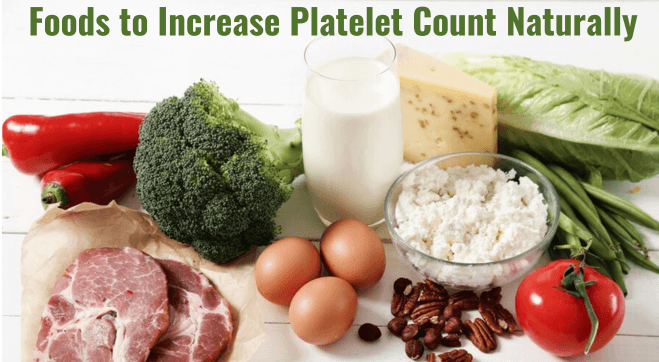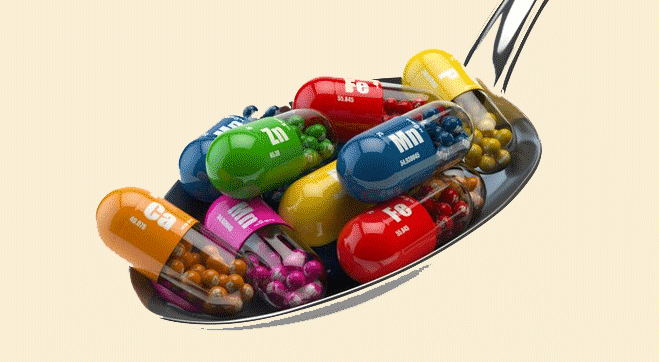Boosting blood platelets is essential for maintaining overall health and well-being. Adequate platelet count is crucial for effective blood clotting, immune system function, and overall cardiovascular health. Whether you’re recovering from an illness, managing a health condition, or simply seeking to enhance your blood health, understanding ways to increase blood platelets is key.
What is a low platelet count?
The blood has multiple cells for different functions, one of which is platelets. Platelets are cells responsible for blood clotting. In the absence of platelets, you may bleed a lot without clotting. The condition is called thrombocytopenia, which occurs when your bone marrow doesn’t produce enough platelets. Certain medical conditions or medications may be the reason for low platelets that manifest in terms of versatile symptoms of low platelets.
What is the normal platelet level?
In a healthy adult, normal platelets range [1] from 150,000 to 450,000 per microliter of blood. Regular monitoring through a platelet count test helps gauge these levels and identify potential issues. Here are different levels of low platelets:-
- Mild thrombocytopenia: Platelet ranges between 101,000 and 140,000 per microliter of blood.
- Moderate thrombocytopenia: Platelet ranges between 51,000 and 100,000 per microliter of blood.
- Severe thrombocytopenia: Platelet ranges between 51,000 and 21,000 microliters of blood.
Relevant tests, such as a complete blood count test (CBC), can provide a comprehensive assessment of platelet count, aiding healthcare professionals in determining the most effective course of action. Regular health check-ups and varied blood tests ensure a holistic approach to maintaining optimal platelet levels and overall well-being.
Reasons for low platelets
Thrombocytopenia can occur for a variety of reasons, such as:
- Your body is not making enough blood platelet
Conditions that damage your bone marrow may cause your body not to make enough platelets. These medical or non-medical conditions are:
- Anaemia
- Leukaemia or lymphoma
- Viral infections like chickenpox, hepatitis C, or dengue
- Chemotherapy drugs
- Heavy alcohol consumption
- Exposure to toxic chemicals
- Your body needs to use more platelets.
Conditions that may cause your body to use up platelets faster than they are made lead to thrombocytopenia, although temporary, are as:
- Thrombotic thrombocytopenic purpura
- Pregnancy
- Bacterial infections in the blood
- Hemolytic uremic syndrome
- Autoimmune diseases
- Certain medications
- Your spleen is accumulating too many platelets.
The spleen works as a blood filter. It filters old RBCs and accumulates WBCs and platelets. Any damage to the spleen may allow many platelets to get trapped in it and reduce blood circulation.
Understanding these reasons for low platelets and watching out for the symptoms of low platelets can help you seek on-time prevention and intervention – medical or otherwise.
Signs of low platelet count
In certain conditions, your body may not make enough platelets, which can be a health concern. If the platelet counts are below average, it may lead to various complications in the body, including minor bleeding inside or around the brain.
Here are some of the signs and symptoms of low platelet count:-
- Persistent bleeding which won’t stop
- Nosebleeds
- Bleeding gums
- Bleeding, which may result in red or brown spots under the skin due to the leaking blood vessels, usually on the lower legs
- Easy or intense bruising (purpura)
- Blood in the stool, which may look bright red, dark, or tarry
- Heavy menstrual bleeding
- Blood in the urine
If you’re experiencing these signs of low blood platelet or thrombocytopenia, consult with your doctor right away. If left untreated, thrombocytopenia may cause severe complications in the body, including bleeding in the gut or brain. You may ask your doctor about the food which increases blood platelets.
How to increase platelet count naturally?
Sometimes, platelet count may drop owing to medical conditions such as dengue fever or viral. If you are wondering how to increase platelet count naturally, consider changing dietary habits or going for a platelet transfusion. Talk with your doctor about the best way to increase platelets or restore average count through natural and medical means wherever required.
Nutrition plays a crucial role in ensuring that your blood platelet count remains optimal. While several minerals, vitamins and multivitamin supplements can aid in your quest to increase platelet count, folate and Vitamin B12 takes the centrestage.
Adults tend to require 400 mcg of folate daily while pregnant women need 600 mcg as folate [2], the synthetic form of folic acid, is essential for healthy blood cells. You can consider including beef liver, spinach, brussel sprouts, fortified cereals, rice, and yeast in your daily diet to make sure that you are consuming enough folate on a daily basis.
At the same time, consumption of too much folate to increase platelet count, either through food or through supplements, can make you susceptible to Vitamin B12 deficiency and colorectal cancer in the extreme cases.
Adults aged over 14 years need 2.4 mcg of Vitamin B12 daily [3]while pregnant women need 2.6 mcg and nursing moms need 2.8 mcg. To cater to this, you will also need to include Vitamin B12-rich foods, such as beef, eggs, clams, fishes, such as tuna, salmon and trout in your diet. Vegetarians and vegan individuals can opt for fortified cereals, almond milk, and Vitamin B12 supplements to meet daily Vitamin B12 needs.
Diet to increase Blood Platelets
Here is the list of foods to increase white blood cells and platelets:-
- Milk: It’s a high source of calcium and protein, milk helps your body gain strength. It is rich in vitamin K that helps in blood clotting mechanisms. Additionally, regularly consuming milk may also help enhance your total blood platelet counts, including RBCs and WBCs. Try including this food to increase white blood cells and platelets to enjoy holistic health. For individuals unable to consume milk, it’s imperative to explore alternative calcium-rich foods.
- Papaya Leaf Extract: One of the best home remedies to increase platelets is consuming papaya leaf extracts. Studies have yet to reveal how papaya leaf extracts help improve platelet count. Still, they have been traditionally used to treat dengue and viral fever. Papaya Leaf Extract is also considered a good denge treatment food. [4]
- Pumpkin: Yet another food to eat to increase platelet count. Rich in vitamin A, it aids in increasing the number of platelets secreted by the bone marrow. You may also consume vitamin A-rich fruits to increase platelets, for instance, mango, papaya, grapefruit, etc. Talk to your doctor about your platelet increase diet if you have any underlying medical condition.
- Pomegranate: Consuming pomegranate, which is saturated with iron, can improve blood counts significantly. You may consume this food to increase platelet count. Pomegranate is rich in antioxidants, which help boost immunity and fight infections caused by thrombocytopenia.
- Green leafy vegetables: Leafy vegetables like spinach, basil, cabbage, asparagus, and parsley can help maintain the blood count. They are a bucket full of vitamin K, which is necessary for people with thrombocytopenia. Your healthcare provider recommends consuming a vitamin A-rich diet to increase blood platelets.
- Omega-3 fatty acids: Incorporate Omega-3 Fatty Acids from salmon oil, walnuts, and cod liver oil, for a positive impact on platelet count when consumed in moderation
- Vitamin B12-rich foods: Include Vitamin B12-Rich Foods like beef, beef liver, eggs, clams, and fish (trout, salmon, tuna). Dairy products such as milk, cheese, and eggs also contribute.
Maintaining healthy platelet levels is crucial for effective blood clotting and overall well-being. When seeking natural ways to increase platelets, individuals may consider adopting specific lifestyle practices. These natural approaches should complement, not replace, professional medical advice, and individuals with concerns about their platelet levels should seek guidance from doctor
What foods to avoid if you have low platelets?
The Platelet Disorder Support Association (PDSA) recommends eating whole foods, green leafy veggies, and healthy fats to people with low platelets. You should limit canned or processed foods to reduce the risk of autoimmune disorders.
- Certain foods like ginger, onion, blueberries, and red grapes in large quantities may interfere with your body’s ability to blood clot.
- Garlic may also make your blood thin, so it should be avoided, especially if you have mild thrombocytopenia.
- Foods containing high amounts of trans fat should also be avoided. These foods may increase blood pressure and affect your heart.
- Avoid added sugars to ensure that your blood sugar levels remain stabilised.
- Foods with a low glycemic index, such as whole grains, brown rice, and barley, can decrease platelet aggregation [5]
- Foods high in omega-3 PUFA, such as walnuts, flaxseeds, and fatty fish, can decrease platelet aggregation [5]
- Additionally, it would be best to restrict alcohol or caffeine in your diet.
A Note From HealthcareOnTime
People with low blood platelet count may improve their condition by eating a specific diet and adopting natural ways to increase platelets. Include nutrients like folates, vitamins, and iron to help increase blood platelet count naturally. Vitamin C is mainly linked to increased levels of blood platelets. That said, avoiding certain foods, such as cranberry juice, may help improve your health.
Disclaimer
The information listed here is strictly for educational purposes and is not intended to offer personal medical advice. Do consult your physician for any questions you may have regarding a medical condition. It’s not advised to disregard professional medical advice or delay in seeking it because of any information listed here. The Nutrition Source does not recommend or endorse any products.











